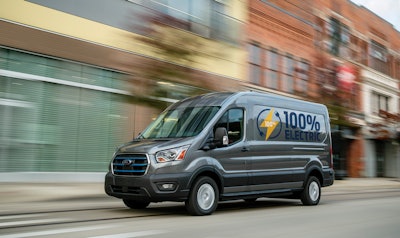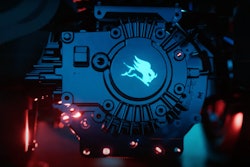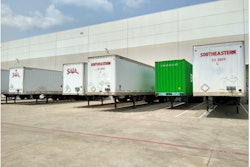
Using microgrids at the fleet level is just one of several conversations Ford is gearing up to have with customers through its new commercial electric vehicle program Ford Pro Charging.
Solar-powered microgrids, in particular, offer fleets increased resiliency in the event of power outages while also offering supplemental power through stationary energy storage systems such as repurposed EV batteries which, while no longer suitable for powertrain use, can be used to charge EVs.
“We believe microgrids are going to be a critical part of this infrastructure,” said Muffi Ghadiali, head of Ford Pro Charging.
Notable power outages in states like California and Texas pulled Ford engineers together to take on grid inefficiencies.
“Resiliency is going to be number one in terms of why we deploy batteries and other mechanisms of storage at these depots and other charging locations, but also from a peak shaving standpoint as well,” Ghadiali said.
“Imagine the batteries are being charged up in the day when there's a lot of relatively inexpensive solar generation energy and then they can soak up the energy and then dispense that energy back into the vehicles when they come in at night,” Ghadiali said.
[Related: DHE's microgrid powers Volvo VNR electrics and provides surplus of power]
One such model has already been at work in Southern California at Dependable Highway Express where solar panels charge up stationary batteries during the day that are in turn used to charge Class 8 Volvo electric VNR trucks at night. The system produces a surplus amount of solar energy that can be sold to the utility.
Batteries are one of the chief expenses of electric vehicle production and they also present value for stationary energy storage and recycling following powertrain use which brings up the question of battery ownership options for fleets.
“That's an important part because otherwise you have a lot of leftover capabilities that are usable either potentially by the customer or in reuse in other situations,” Ford Pro CEO Ted Cannis said. “That's part of our whole battery relife, reuse and recycling strategy.”
Charging ahead
Beyond tackling microgrid questions, Ford Pro Charging is aiming to offer fleets a turnkey solution that establishes a charging network that best addresses their unique needs.
Some fleets may prefer depot charging while others may opt for public or home-based charging performed by their employees—or maybe a combination of all three.
Ford Pro Charging’s goal is to provide integrated end-to-end charging solutions including consultation on depot site design, installation, operations, maintenance and support backed by Ford Pro.
[Related: Musk 'hopeful' Semi production starts in 2023]
Ford Pro-built and Ford Pro-backed software analyzes how each fleet operates and can precisely orchestrate charging management based on those behaviors. The technology also determines the optimal times to charge based on energy rates. Proper grid utilization can mean getting maximum value out of an existing transformer that otherwise could take plenty of time and expense to replace.
“Upgrading the transformer is not an easy thing,” Ghadiali said. “It sometimes might take a year to just get the permits to upgrade, and it could cost hundreds of thousands to millions of dollars. One of the interesting things that we can do with software is delay that upgrade by load management and making sure that the infrastructure operates within the transformer capacity.”
Ford Pro Charging relies on Ford-built chargers, hardware and software.
“We are not taking a consumer charger and relabeling it as a fleet charger and then selling it to fleets,” Ghadiali said. “We are designing things from the ground up, both hardware and software. We built a platform that ties telematics, charging management and energy services that runs on machine learning and AI algorithms and takes all of the complexity away from our customers but gives them the flexibility to operate their fleets in the way they want.”











